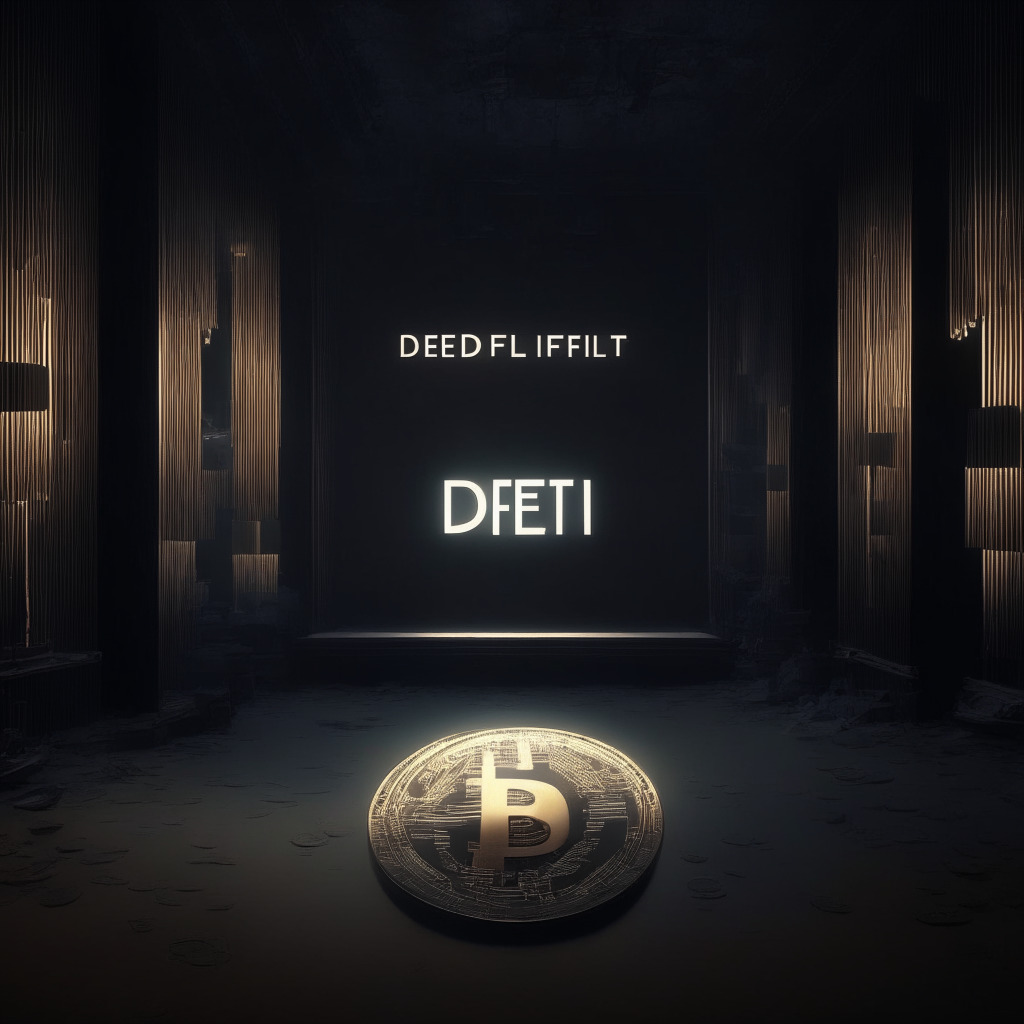Bakkt, a crypto-economy firm, expresses interest in expanding its operations to Hong Kong, the United Kingdom, and some European Union regions due to favorable regulatory environments. This follows Bakkt’s acquisition of Apex Crypto, leveraging partners like Webull, Public.com, and Stash to facilitate global growth. However, pesky regulatory uncertainties in the U.S. complicate alliances and force delisting of certain cryptocurrencies.
Search Results for: Bakkt
Bakkt Delists Solana, Polygon, Cardano: Regulatory Impact on Crypto’s Future and Adoption
Bakkt delists Solana, Polygon, and Cardano due to regulatory uncertainty following the US SEC’s announcement considering them securities. This decision mirrors Robinhood, and both are proactively awaiting further clarity on offering a compliant list of coins.
Bakkt Delists Top Cryptos: Regulatory Clashes Impacting Crypto Markets and Innovation
Bakkt delists major cryptocurrencies Solana, Cardano, and Polygon due to regulatory uncertainty, following the SEC’s legal actions against Coinbase and Binance. This highlights the need for clear regulations that ensure a stable trading environment without inhibiting growth and innovation.
Bakkt Eyes International Expansion Amid Evolving Crypto Regulations: Pros and Cons
Bakkt’s Chief Product Officer, Dan O’Prey, reveals plans for retail expansion as the international regulatory landscape for cryptocurrency evolves. Bakkt is exploring retail expansion internationally, focusing on embedded trading, payouts, and rewards. Improved regulations could potentially attract talent and capital, speeding up cryptocurrency integration into mainstream financial markets.
Bakkt Delists 25 Tokens: Balancing Regulatory Risk and DeFi Innovation
Bakkt has removed support for 25 out of 36 tokens offered by its newly-acquired platform, Apex Crypto, to reduce exposure to risk amidst regulatory changes. This may protect investors but raises concerns about the impact of regulation on DeFi innovation.
Bakkt Delists 25 Crypto Tokens: Strategic Move or Market Overreaction?
Bakkt delisted 25 of 36 crypto tokens on its acquired trading platform Apex Crypto as part of its regular review process, focusing on clients’ best interests and compliance with regulatory guidance. Many dropped tokens were connected to DeFi and NFT ecosystems, leading to skepticism and questions about Bakkt’s decision.
Bakkt Delists DeFi Tokens: Compliance Triumph or Barrier to Crypto Innovation?
Bakkt has decided to delist numerous digital assets, including prominent DeFi tokens, in response to regulatory guidance and industry developments. This move raises questions about the future for investors and projects while highlighting the significance of ongoing regulatory developments and the impact on the cryptocurrency landscape.
BitGo and Swan Bitcoin: A Strategic Alliance For a Bitcoin-Only Trust Company
BitGo and Swan Bitcoin plan a Bitcoin-only trust company aimed at US institutional investors. The joint venture, still awaiting regulatory approval, proposes to manage Bitcoin custody, administration, and management, eliminating risks from other altcoins. Targeted investors include asset managers, pension plans, family offices and treasuries, emitting increased interest in the sector.
Navigating FinTech’s Double-Edged Sword: Nexo’s Dual Mode Crypto Card’s Triumphs and Roadblocks
Nexo, in partnership with Mastercard, recently launched the first “Dual Mode Crypto Card”, providing crypto-based debit and credit services in the European Economic Area (EEA). It promises added user benefits but also faces regulatory challenges, exposing the delicate balance of crypto innovation and legal compliance.
Navigating Innovation and Regulation in Crypto – A Global Odyssey
“The Argentine Agency for Access to Public Information is investigating Worldcoin’s data collection practices; Canadian authorities aim to improve storage of seized digital assets including NFTs; Coinrule recently launched its Marketplace driven by Generative Models. This crypto evolution requires a balance between innovation and regulation.”
Crypto Clash: Wall Street Giants Embracing Blockchain – Boon or Threat to Decentralization?
Large entities like Blackrock and JP Morgan have evolved from initially rejecting to actively embracing cryptocurrencies, stirring mixed reactions. The recent Blackrock Bitcoin ETF application sparks debate over sustainability of decentralization ethos and big business involvement in the crypto market, with SEC’s decision being closely monitored.
Delisting ADA, SOL, and MATIC: Balancing Regulatory Compliance and Crypto Innovation
Bakkt Inc delists Cardano, Solana, and Polygon following their designation as investment contracts by the SEC. This move aims to ensure compliance with regulatory guidelines, but may hinder the growth potential of affected digital currencies and the broader crypto industry.
Crypto Firms Boost Legal Hires Amid SEC Scrutiny: Compliance and Blockchain’s Future
Amid increased regulatory scrutiny in the US, crypto companies are emphasizing legal hires, investing in compliance teams, and working with law enforcement to address concerns. This comes after recent SEC lawsuits against Binance and Coinbase, prompting a push for better compliance and potentially leading to improved practices and broader technology adoption.
Blockchain Forever Changes Cross-Border Credential Verification: EU’s Bold Move & Privacy Concerns
The European Commission is collaborating with blockchain provider Protokol on the EBSI Vector project, aiming to simplify cross-border verification of educational and professional credentials. The forthcoming blockchain-based solution promises a secure, decentralized digital infrastructure, incorporating EU initiatives like EUeID. However, maintaining a balance between innovation and regulation is crucial to prevent misuse and protect user privacy.
SEC’s Crypto Custody Rule: Controversy Engulfs Traditional Finance, Crypto Sector & Regulators
The SEC’s proposal requiring investment firms to safeguard client assets, including cryptocurrencies, with approved custodians faces pushback from organizations like JPMorgan and the Small Business Administration. Critics argue the rule is “illegal, infeasible, and dangerous,” with concerns over unique custody logistics for crypto assets and potential limitations on service options.














